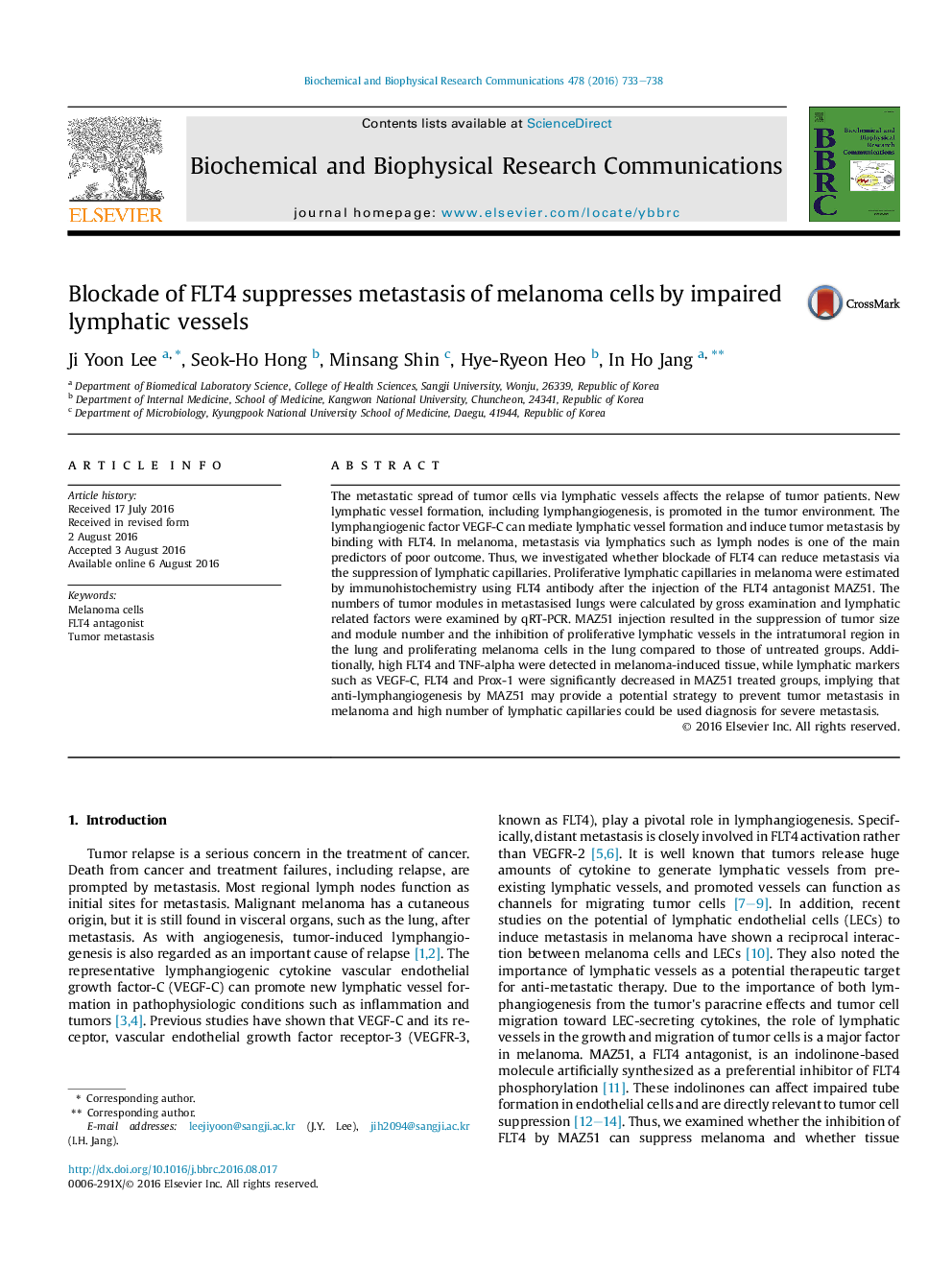| Article ID | Journal | Published Year | Pages | File Type |
|---|---|---|---|---|
| 5506804 | Biochemical and Biophysical Research Communications | 2016 | 6 Pages |
Abstract
The metastatic spread of tumor cells via lymphatic vessels affects the relapse of tumor patients. New lymphatic vessel formation, including lymphangiogenesis, is promoted in the tumor environment. The lymphangiogenic factor VEGF-C can mediate lymphatic vessel formation and induce tumor metastasis by binding with FLT4. In melanoma, metastasis via lymphatics such as lymph nodes is one of the main predictors of poor outcome. Thus, we investigated whether blockade of FLT4 can reduce metastasis via the suppression of lymphatic capillaries. Proliferative lymphatic capillaries in melanoma were estimated by immunohistochemistry using FLT4 antibody after the injection of the FLT4 antagonist MAZ51. The numbers of tumor modules in metastasised lungs were calculated by gross examination and lymphatic related factors were examined by qRT-PCR. MAZ51 injection resulted in the suppression of tumor size and module number and the inhibition of proliferative lymphatic vessels in the intratumoral region in the lung and proliferating melanoma cells in the lung compared to those of untreated groups. Additionally, high FLT4 and TNF-alpha were detected in melanoma-induced tissue, while lymphatic markers such as VEGF-C, FLT4 and Prox-1 were significantly decreased in MAZ51 treated groups, implying that anti-lymphangiogenesis by MAZ51 may provide a potential strategy to prevent tumor metastasis in melanoma and high number of lymphatic capillaries could be used diagnosis for severe metastasis.
Keywords
Related Topics
Life Sciences
Biochemistry, Genetics and Molecular Biology
Biochemistry
Authors
Ji Yoon Lee, Seok-Ho Hong, Minsang Shin, Hye-Ryeon Heo, In Ho Jang,
